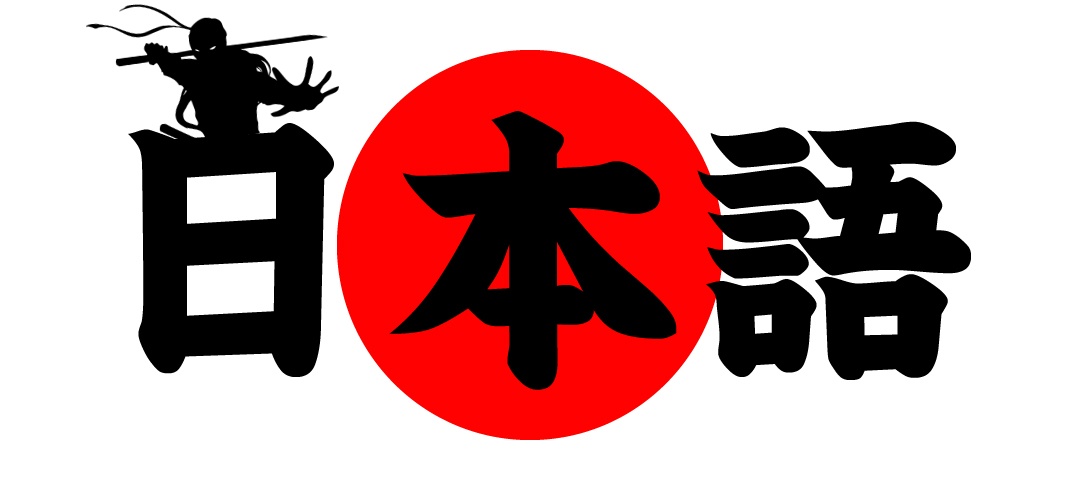7 Ways to Learn Japanese Like a Ninja
Today we’d like to bring you our short list of tips and tricks for boosting your Japanese language ability and make studying less of a chore. The following is a combination of both tips and experiences of foreigners who have achieved varying degrees of fluency in the language and our combined knowledge. Check it out below!
By SoraNews241. Learn Like a Kid
https://en.wikipedia.org/wiki/Kindergarten#/media/File:Parent%27s_day_at_Eirfan%27s_Kindergarten.jpg
People talk about the importance of “immersion” when trying to learn a language to the point of fluency. But that’s a fairly ambiguous term and could mean anything from living like a monk and reading only Japanese textbooks for five years of your life to moving to Japan and refusing to speak your native language. Rather, we like to think of immersion as approaching Japanese in the same way that a child learns his or her own language, albeit with less drool and a little more grace and composure.
Remember back when you were a baby and you first learned to speak? Sitting there as your parents explained the correct grammatical structure of a typical sentence, teaching you that “cat” is a noun, and giving you lists of new words to write out over and over until you could recite them all? No? Probably because that’s simply not how we naturally acquire language.
When someone yelled at you to do (or more likely stop doing) something when you were a child, did the fact that you could not grammatically identify the types of words being used and the tense in which they were spoken prevent you from getting the message? Almost certainly not. A solid understanding of grammatical terms can be helpful in learning a second language, but spending hours memorizing every possible conjugation of a verb and practicing stroke orders for writing kanji characters won’t help you become a better speaker of a language any quicker. After all, which Japanese child learned to write whole sentences or kanji characters before he or she could have a simple—and usually grammatically sound, despite not paying active attention to it—conversation with their parents? So learn like a kid, forget about the “rules” and let the language surround and soak into you. But how can we do that?
2. Keep Talking, Even If You’re Terrible
https://www.youtube.com/watch?v=ustqGNxVkOI
“When I was on tour in Japan, I did all of my interviews in Japanese even though I sucked,” comments Marty Friedman, legendary guitarist for Megadeth and now TV show host here in Tokyo. “Any chance that I had to use my Japanese I would go out of my way to do it. Just like music, when you start you’ve gotta like jam with everybody even if you don’t like the situation. You’ve gotta find those situations and don’t blow ’em off when they happen.”
Think about how many times you’ve seen small children babbling away on the train or on the bus, their parents barely even listening after a day of dragging them around town, answering their nonsensical questions and acknowledging their statements that, yes, that car is blue, and yes, the lady sitting opposite has a very large head. These kids are learning all the time, using the words they’ve picked up here, there and everywhere, making mistakes in their grammar and generally sounding a bit silly. But that doesn’t matter, because it’s all part of the learning process. No child remains silent until they one day turn to their parents and say, “Excuse my interruption, but I fear I may have soiled myself. Escort me to the bathroom post-haste!” Unless, of course, they’re Stewie Griffin—and the jury’s still out on whether his parents can hear him, anyway. So take Marty’s advice here and babble away, even if you really do suck.
3. Apply to Do a Homestay in Japan
http://www.homestayweb.com/index_japan.cgi
Homestays are a great way to learn not just the language but a little bit about culture, manners and, of course, come to realize that for all the differences you’ve read about, Japanese people are just ordinary folk like you and me. If moving to Japan simply isn’t a practicality, a short visit and a homestay are definitely worth doing as you’re guaranteed plenty of people to interact and, hopefully, become friends with.
Megadeth’s Marty, too, recommends checking into an ordinary Japanese home, having done it himself when learning the language: “What I would suggest is something like a homestay […] Because then you get the education that you can’t get in school, and it’s really, really helpful and an experience that you’ll never forget.”
He’s not wrong there! Homestays are a ton of fun and an experience that we’d recommend to anyone hoping to broaden their horizons and brush up their language skills in the bargain. They may take a little time and research to set up, but simply type “Japan homestay” into Google and you’ll be met with dozens of results like Homestay in Japan and Homestay Web, to name but a few, so see what you can find and make it happen.
4. Read Anything You Can Get Your Hands On
https://www.youtube.com/watch?v=2zdlT1hqnyQ
Speaking and actively using your Japanese is essential, but reading—when you’re ready for it—is still very important. By familiarizing yourself with written Japanese you’ll meet new terms and encounter new kanji characters that simply don’t pop up in everyday life and conversation. But don’t feel that you have to read only the thickest, most serious of textbooks you can find—literally anything will do. Manga, text-heavy video games, even the preparation instructions on the back of a packet of curry mix will have plenty for you to learn from.
American J-Pop singer Nicholas Edwards (above), for instance, maintains that he learned much of his Japanese by reading and singing existing song lyrics, saying that he would listen to them on loop, making a note of any words he was not familiar with. So long as it’s Japanese and you can find something in it to hold your attention, it really doesn’t matter what you’re reading.
5. But Don’t JUST Read!

http://www.wikihow.com/Category:Japanese
Remember our advice to learn like a kid? Well, kids don’t sit with their heads in a book before they start speaking. Some people can look at long lists of vocabulary and remember them simply by writing them out a few times; the rest of us, however, aren’t quite so lucky.
If the very first time you meet a word or kanji character is on a flashcard or in a list of terms you want to learn, it’ll take longer to remember simply because there’s no foundation for this word in your memory. Having goals and set vocabulary to work through can help you keep your studies in order and make progression easier to monitor, but it’s important to actively use what you learn and ensure that there’s Japanese coming out of you rather than just going in. Besides, you don’t want to be one of those guys who boasts about passing the toughest level of the Japanese Language Proficiency Test but struggles to hold a conversation in a bar (trust us, they exist!), do you?
6. Learn the Language in Context

http://en.rocketnews24.com/2013/10/18/ninja-life-skills-seven-tips-to-make-learning-japanese-that-little-bit-easier/
If you’re trying to learn entire lists of vocab or kanji, looking at your flashcards and repeating them over and over, you’re going to be there for a long time. The key to memorization for most of us is forming attachments and linking words and memories or mental images together, which is where experiencing words and characters in an appropriate, natural context really helps. Rather than taking it one word at a time, learn entire phrases and sentences. Not only will this enable you to use them right off the bat, but you’ll be learning how and where they appear in sentences, and if it’s a verb, how it’s conjugated in any particular context.
If you struggle to remember a certain kanji, think about where you’ve seen it in the real world, or put it in a memorable sentence or two—after all, you won’t be encountering many kanji floating around the world completely on their own.
In my own experience, I often tended to forget the words I was asked to learn from vocabulary lists during my time at Japanese language school, but words I heard around me or could associate with places, people, objects and situations stuck right with me. The intransitive verb atsumaru (to gather)? I learned it playing Gears of War in Japanese and can now confidently use it the next time I find myself leading a squad of battle-hardened, chainsaw-wielding grunts. The verb nikomu (to boil or cook together)? First saw it on the back of that curry box I mentioned earlier.
I learned the phrase sansei da (“I’m with him/I agree”) from one of the opening scenes of the awesome anime Samurai Champloo, and during a very awkward/memorable moment in my mid-twenties I learned that kimochii (pleasant feeling) and kimuchi (kimchi, the spicy Korean dish) are two very, very different words, but that’s a story for another time.
There will always be some words and kanji characters that you’ll have no choice but to grind at to keep in your memory, but the vast majority can and should be met in context and through meaningful experience—that way they’ll stick in your head without you even trying.
7. Use What You Have On Hand
https://www.youtube.com/watch?v=EtGgBp1eGMI
But what if you can’t get to Japan to hear all these words “in context”? You have school, a job, loans to pay off, a family to support. Not to worry! It may sound hard to believe, but there are foreigners who have lived in Japan for 10 or more years who still struggle to put simple sentences together. More often than not, they live in urban areas and have either only foreign friends and co-workers or Japanese friends who speak or want to learn English.
This isn’t necessarily a bad thing, and some people are quite happy not to speak even a word of Japanese. But if you’re hoping to become fluent, it’s important to realize that you have to use what you’ve learned, and simply being in Japan is not a prerequisite for success any more than buying a shiny new laptop will automatically make you a best-selling author.
Thanks to the internet, we have access to a wealth of information and resources at our fingertips, and a lot of it is completely free. There are groups that can be joined, anime and movies with or without fansubs (we recommend the latter—whether you miss most of it at first or not) to be watched, correspondence courses to enroll in and even chat partners and tutors waiting to be found online.
The All Japanese All The Time method can be achieved anywhere in the world (well, maybe apart from when ordering a pizza or hanging out with friends who don’t speak it), so if you’re really dedicated to learning the language you can create your own little Japanese microcosm and bask in it. Gab away as you wash the dishes, walk the dog and scrub the toilet. Speak to your cat entirely in Japanese (it’s probably ignoring you anyway). If you can narrate your entire daily life in real-time—“I’m folding the laundry;” “My toast is burning”—then you’re doing a superb job. Not being in Japan makes learning Japanese a little harder, but it’s entirely possible, so don’t give up.
We’ll leave you now with some more thoughts from our pal Marty Friedman, who went from novice to being a TV show host in the blink of an eye, but not without a lot of hard work on his part. Keep studying, but most of all keep absorbing and coming into contact with Japanese—you’ll get there eventually!




